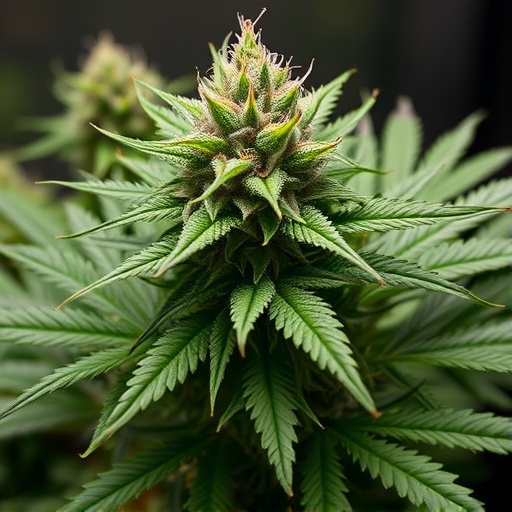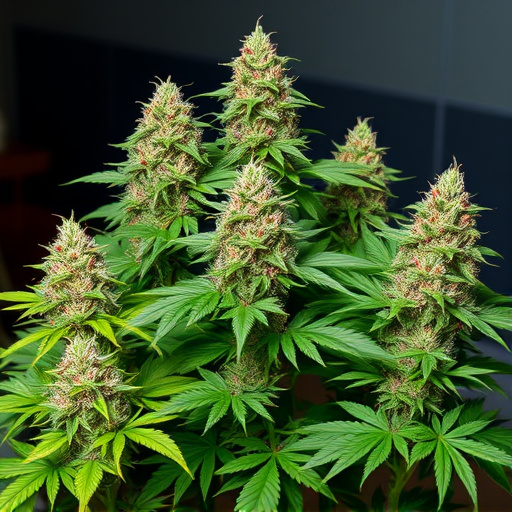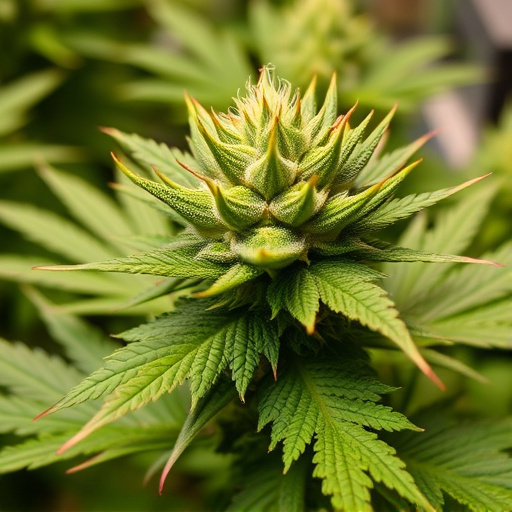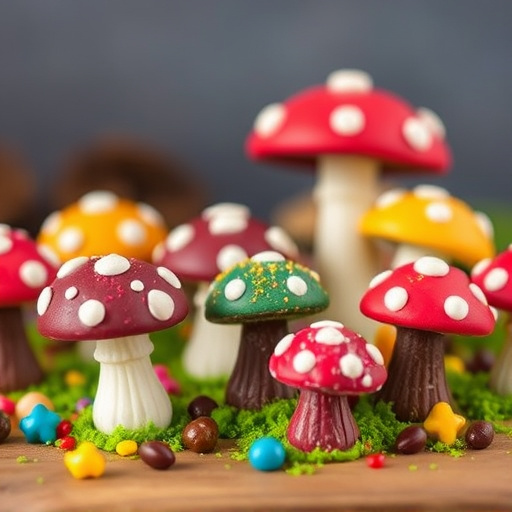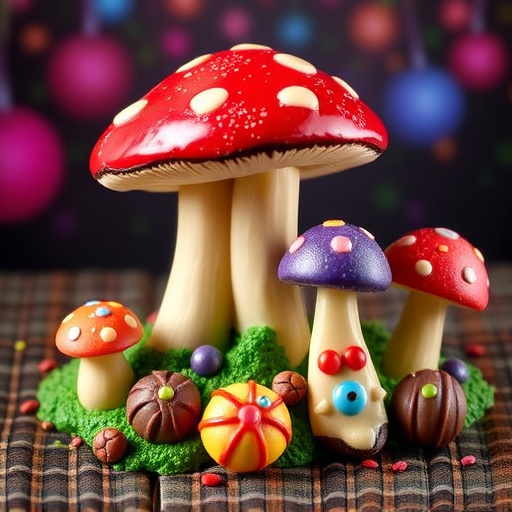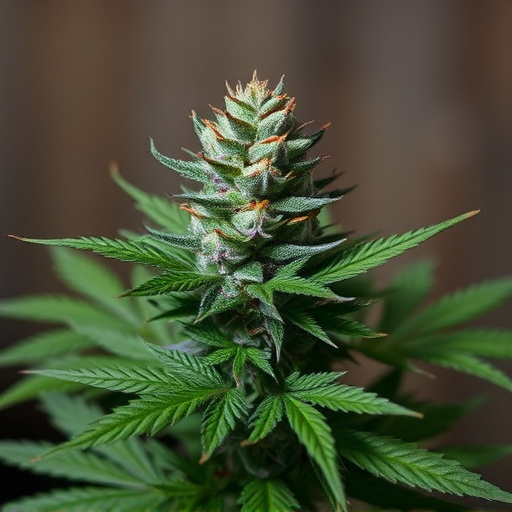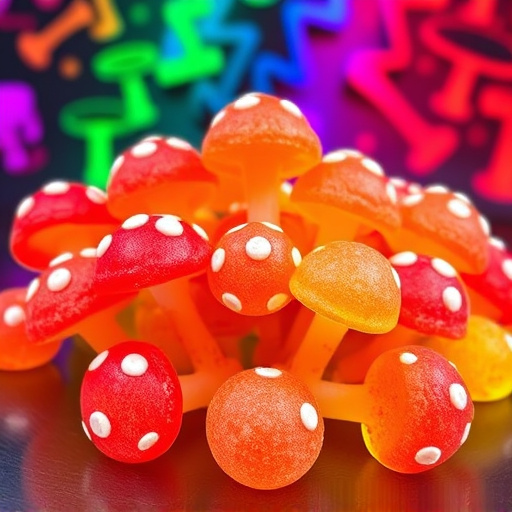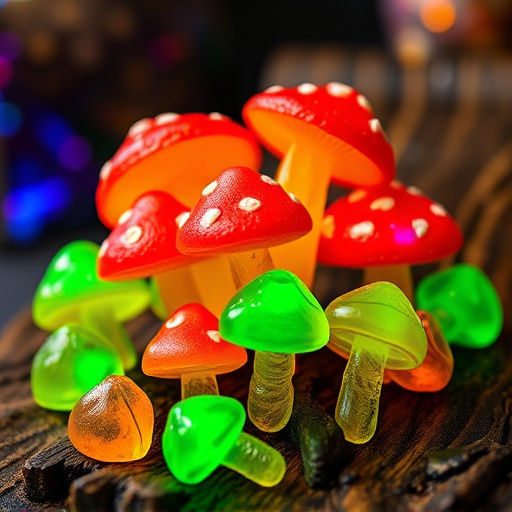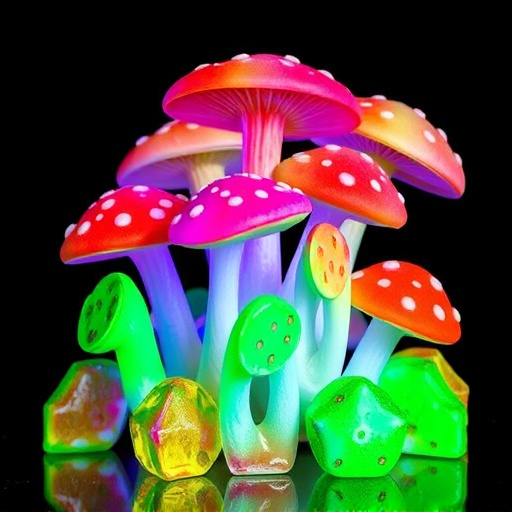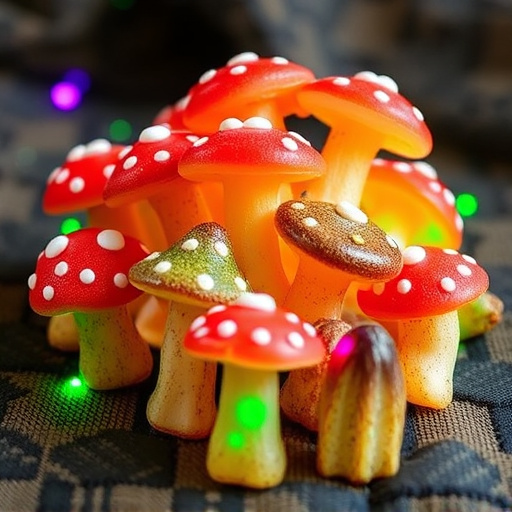Magic Mushroom Gummies are concentrated forms of psilocybin, a compound that interacts with brain serotonin receptors, leading to altered perceptions, boosted creativity, and emotional processing aid. These gummies stimulate neuroplasticity, offering potential for treating PTSD, depression, and anxiety by enhancing neurotransmitter activity and forming new neural connections. Recent research highlights their therapeutic benefits on neural connectivity, promoting flexibility in brain networks and providing novel perspectives and emotional awareness.
“Uncover the powerful effects of Magic Mushroom Gummies, a modern twist on traditional psychedelics. This article delves into the science behind these innovative products, exploring how their active compounds interact with brain function and neural connectivity. From anxiety relief to enhanced creativity, we examine the potential benefits supported by research. Discover the sensory transformations, altered perceptions, and profound personal insights associated with magic mushroom gummies, shedding light on both their mystical appeal and therapeutic potential.”
- The Science Behind Magic Mushroom Gummies and Brain Function
- – Exploring the active compounds in magic mushrooms and their interaction with the human brain
- – Research on neural connectivity and psychedelic experiences
The Science Behind Magic Mushroom Gummies and Brain Function
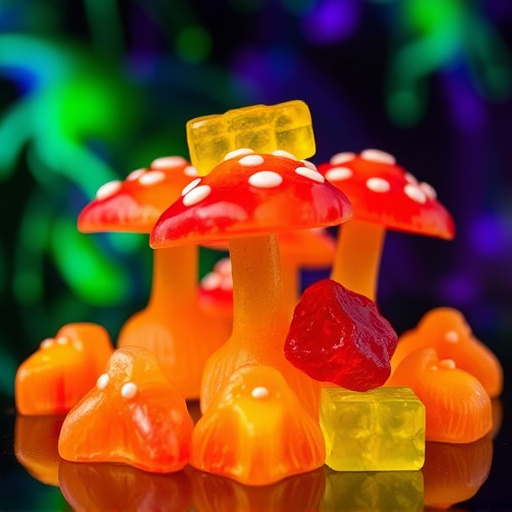
Magic Mushroom gummies, while sounding like a modern treat, harness the powerful compounds found in psilocybin mushrooms. Psilocybin, the active ingredient, is known to interact with our brain’s serotonin receptors, particularly those involved in neural connectivity and communication. This interaction can lead to profound changes in perception, mood, and thought patterns.
Research suggests that magic mushroom gummies may enhance creativity and open-mindedness by promoting unconstrained thinking and breaking down mental barriers. They’ve also shown potential in aiding individuals dealing with anxiety, depression, and trauma by facilitating a deeper understanding and processing of emotional experiences. The key lies in their ability to stimulate neuroplasticity—the brain’s remarkable capacity to form new neural connections, which is often diminished in conditions like PTSD and major depressive disorder.
– Exploring the active compounds in magic mushrooms and their interaction with the human brain
The active compounds in magic mushrooms, primarily psilocybin and psilocin, are responsible for their unique effects on the human brain. These compounds act as serotonin reuptake inhibitors, which means they enhance the activity of serotonin, a neurotransmitter that plays a crucial role in mood, cognition, and perception. When consumed, magic mushroom gummies allow these compounds to bind with serotonin receptors in the brain, leading to altered states of consciousness, enhanced creativity, and profound emotional experiences.
One of the most intriguing aspects of magic mushrooms is their impact on neural connectivity. Research suggests that psilocybin can promote plasticity in the brain, encouraging new neural pathways and strengthening existing connections. This effect has been linked to improved problem-solving skills, heightened empathy, and a deeper appreciation for art and music. The interaction between magic mushroom compounds and the brain’s neural network is a fascinating area of study, offering potential therapeutic benefits that are gradually being unraveled in modern science.
– Research on neural connectivity and psychedelic experiences
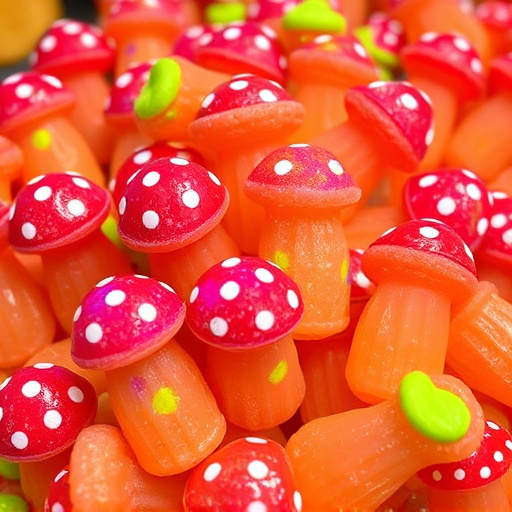
Recent research into the effects of magic mushroom gummies on neural connectivity has shed light on their potential therapeutic benefits. Studies have shown that psychedelic experiences, induced by compounds found in certain mushrooms, can lead to significant changes in brain activity and network connectivity. These alterations are associated with enhanced creativity, improved emotional well-being, and even reduced symptoms of anxiety and depression. Scientists believe that these effects may be linked to the mushroom’s ability to promote neuroplasticity—the brain’s capacity to form new neural connections.
The concept of neural connectivity refers to how different regions of the brain communicate and interact with each other. Magic mushroom gummies, through their psychedelic properties, have been found to facilitate more flexible and dynamic interactions between various brain networks. This disruption in typical neural patterns allows for novel perspectives and heightened emotional awareness. As a result, users often report profound and transformative experiences, leading researchers to explore their potential in therapeutic settings for mental health disorders.
In conclusion, magic mushroom gummies, through their unique interaction with neural connectivity, offer a promising avenue for exploring enhanced brain function. The active compounds within these gummies have shown potential in promoting mental flexibility, creativity, and emotional well-being. While further research is needed to fully understand their effects, the current scientific evidence suggests that magic mushroom gummies could be a game-changer in the field of psychedelic-assisted therapy.

